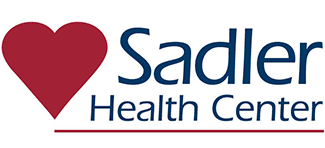Primary care can seem like a general, slightly ambiguous term. What does it really mean? What is a primary care provider? Well, primary care is indeed general medical care. In fact, a primary care provider — who may come from family medicine or internal medicine, depending on your needs — is specialized in diagnosing, treating and preventing a wide variety of conditions. This includes Pediatricians (Pediatric specialists) as well.

But the importance of a primary care provider extends beyond his or her ability to cover myriad issues. Establishing care with a primary care provider affords you consistency and efficiency on a number of levels.
Sadler Health Center offers comprehensive primary and preventative health services, including annual and routine physical checkups, immunizations, TB tests, lab tests, referrals for X-rays, diagnostic tests, family planning and sick visits for all enrolled patients.
Familiarity
Knowing who you are is one thing, but knowing the intricacies of your health and wellness is another. And the latter is something a primary care provider offers you and your family. This knowledge and familiarity helps personalize your care and save time that may have previously been spent explaining medical history, personal caveats and who you are.
A primary care provider’s goal is to deliver the care that’s right for you — not employ a one-size-fits-all approach. Tailored health care is easier when you have a meaningful relationship with your provider.
Prevention and condition management
A primary care provider is responsible for screening all major health-related conditions. If you already have a chronic condition, your primary helps manage it and improve your quality of life.
We screen for many things, including obesity, high blood pressure and diabetes. We also look at immunization records and help with updating and maintaining immunization status. Obtaining vaccines can be difficult if you don’t have a primary care provider.
Emergency Department, Urgent Care and primary care
People often question when is the right time to seek care with their primary is. Should they go to Urgent Care or the Emergency Department (ED)? These options aren’t interchangeable and should be chosen thoughtfully.
An emergency is when a severe condition arises. It’s often a life or death situation. Good examples are heart attack symptoms, stroke or a severe allergic reaction. For emergencies, go to the ED.
If, from a medical standpoint, you feel like your ailment can’t wait until tomorrow, Urgent Care is the place to go. Urgent Care providers commonly diagnose and treat colds and coughs, ear infections, minor burns and cuts, rashes and other non-life threatening conditions.
Again, seek primary care for non-emergent needs, including checkups, screenings, care for common illnesses and immunizations. Primary care should always be your first stop if possible — but not in an emergency.
Caring for you as a team
Primary care providers are part of an expert team that can meet your exact needs. These teams are commonly comprised of physicians, nurse practitioners, physician assistants, registered nurses, Patient Access staff and patient care associates. Contributing unique perspectives, the team approach provides you with well-rounded health care.
If you haven’t already, consider doing some research and picking a primary care provider who’s right for you. The continuity of care you’ll receive and familiarity you’ll experience will help you get the care that’s best for you.
Serving patients like you, Sadler Health Center is dedicated to providing the highest quality of care. We put the health of our community at the center of everything we do.
